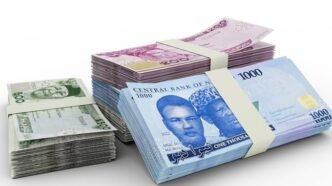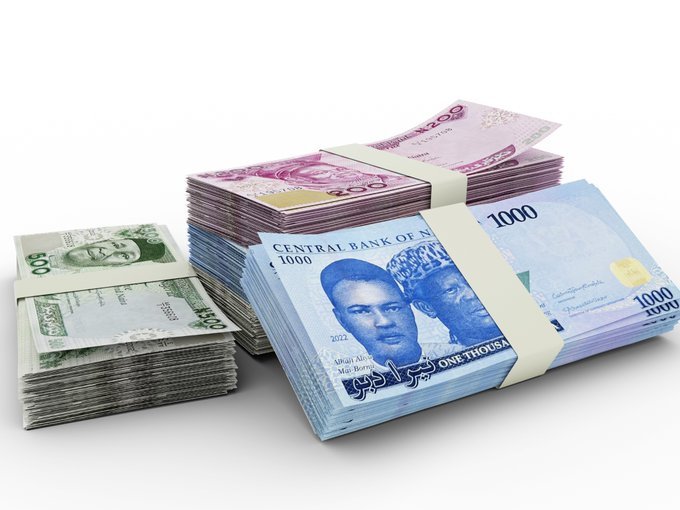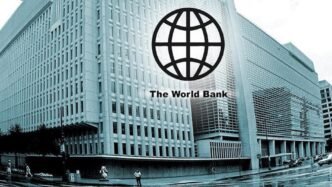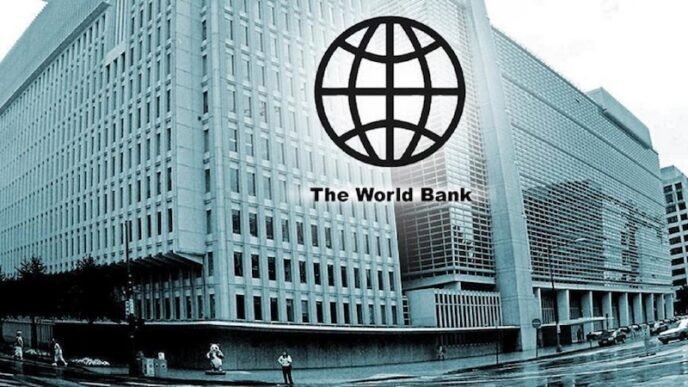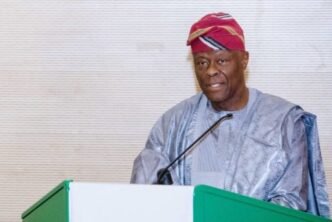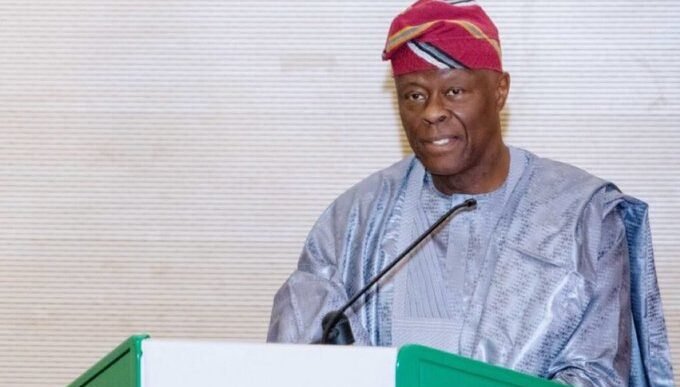The Nigerian naira has once again found itself in the spotlight for the wrong reasons, as a new Forbes currency calculator report for September 2025 has ranked it as the ninth weakest currency in Africa. This development has sparked debate among economists, policymakers, and ordinary citizens who continue to grapple with the effects of inflation, rising living costs, and persistent volatility in the foreign exchange market.
According to the Forbes ranking, which draws its data from the Open Exchange Rates API and updates every five minutes to reflect market trends, the naira now exchanges at approximately ₦1,490 to the United States dollar. This latest depreciation places Nigeria’s currency among the continent’s weakest, trailing behind several smaller African economies that have struggled for years with hyperinflation, limited industrial capacity, and fragile fiscal systems.
The Ranking
Forbes’ September 2025 report lists the following currencies as weaker than the Nigerian naira in Africa:
- São Tomé and Príncipe Dobra
- Sierra Leonean Leone
- Guinean Franc
- Ugandan Shilling
- Burundian Franc
- Congolese Franc
- Tanzanian Shilling
- Malawian Kwacha
- Nigerian Naira
Following Nigeria in tenth place is the Rwandan Franc, which means the naira is weaker than the currencies of major African peers such as South Africa, Kenya, Ghana, and Egypt.
The position of the naira in this list reflects a steady decline over the past decade, despite periodic government interventions aimed at stabilising the exchange rate.
Why the Naira Is Struggling
Economic analysts argue that the naira’s weakness is not a sudden development but rather the result of long-standing structural problems. Some of the key drivers of the currency’s decline include:
- High Inflation: Nigeria’s inflation rate has consistently remained in double digits, eroding purchasing power and reducing the naira’s value in both local and international markets. Food inflation, in particular, has been a major concern, pushing households into hardship.
- Dependence on Oil Exports: Nigeria’s overreliance on crude oil exports makes its economy vulnerable to global oil price shocks. With oil accounting for over 80 percent of Nigeria’s foreign exchange earnings, fluctuations in global demand and supply directly impact the naira.
- Foreign Exchange Market Instability: Multiple exchange rate regimes in Nigeria — including official, parallel (black market), and interbank rates — have created uncertainty. Investors and businesses struggle to access foreign currency, fueling speculation and further weakening the naira.
- Debt Burden: Rising external debt servicing obligations, often paid in dollars, exert additional pressure on foreign reserves, limiting the Central Bank of Nigeria’s (CBN) capacity to defend the naira.
- Capital Flight: The persistent outflow of foreign capital, partly due to insecurity, policy inconsistency, and low investor confidence, has drained foreign reserves and weakened the currency.
Historical Context
The naira was once one of Africa’s most stable currencies. In the 1970s, buoyed by oil boom revenues, Nigeria’s currency was relatively strong compared to the dollar. However, economic mismanagement, military rule, corruption, and over-dependence on oil revenues gradually eroded this advantage.
By the mid-1980s, Nigeria adopted the Structural Adjustment Programme (SAP) under the International Monetary Fund (IMF), which led to currency devaluation. Since then, the naira has struggled to recover stability. What was once exchanged at less than ₦1 per dollar in the early 1980s has now plunged to nearly ₦1,500 per dollar in 2025.
Implications for Nigerians
The weakening of the naira carries significant consequences for ordinary citizens and businesses:
- Rising Cost of Imports: Nigeria relies heavily on imported goods, including food, fuel, raw materials, and machinery. A weaker naira makes these imports more expensive, contributing to inflation and squeezing household incomes.
- Tuition and Medical Bills Abroad: Families paying tuition fees for students abroad or medical bills in foreign hospitals face steeper challenges as the cost of foreign exchange continues to climb.
- Businesses Under Pressure: Manufacturers and small businesses dependent on imported raw materials are struggling with higher costs, reducing competitiveness and in some cases leading to closures.
- Erosion of Savings: For many Nigerians, keeping money in naira-denominated savings accounts now feels unsafe, as inflation rapidly erodes value.
- Impact on Employment: As companies struggle with rising costs and reduced profitability, layoffs and salary cuts become more likely, worsening unemployment rates.
Government’s Response
The Central Bank of Nigeria (CBN) and the federal government have repeatedly assured Nigerians that they are working to stabilise the currency. Measures taken in recent years include:
- Unified Exchange Rate Policy: Efforts have been made to harmonise exchange rates by reducing the gap between the official and parallel markets. However, critics argue that the policy has had limited success.
- Foreign Exchange Restrictions: The CBN has restricted access to foreign exchange for certain imported goods in a bid to encourage local production. While well-intentioned, this has sometimes created scarcity and fuelled black-market activity.
- Monetary Tightening: The apex bank has raised interest rates several times to combat inflation and attract foreign investment. Yet, the results remain modest in the face of broader economic challenges.
- Promoting Local Production: The government has continued to promote agricultural initiatives and industrial policies aimed at reducing Nigeria’s dependence on imports.
Despite these interventions, the naira continues to slide, raising questions about the effectiveness of current strategies and the need for deeper structural reforms.
Expert Opinions
Economic experts say that stabilising the naira will require more than short-term monetary policy actions. According to Dr. Chika Onwu, a Lagos-based economist, “Nigeria must urgently diversify its economy beyond oil. We need to focus on industrialisation, value-added exports, and policies that genuinely attract foreign investment. Without this, the naira will continue to depreciate.”
Similarly, Professor Adeola Olatunji, a financial analyst at the University of Ibadan, noted that, “Currency strength is tied to economic productivity. If Nigeria cannot boost its manufacturing and reduce its dependence on imports, the naira will remain weak no matter how much the CBN tries to intervene.”
Public Reactions
On social media platforms such as X (formerly Twitter), Nigerians expressed frustration over the ranking. Many lamented the worsening economic hardship, with some questioning how Africa’s largest economy could trail behind smaller nations with fewer resources.
One user wrote: “It is shameful that Nigeria, with all its resources, is ranked ninth weakest in Africa. Our leaders must take responsibility.” Another user added: “The naira keeps falling, salaries remain stagnant, and prices of food are skyrocketing. Life is becoming unbearable.”
Looking Ahead
While the Forbes report has once again drawn global attention to Nigeria’s currency woes, the road to recovery is complex. The naira’s ranking as the ninth weakest currency in Africa underscores the urgent need for bold reforms, political will, and genuine economic diversification.
As the debate continues, Nigerians are left grappling with a harsh reality: their once-strong currency is now among the weakest on the continent, a symbol of broader economic struggles that will require collective effort to overcome.
Conclusion
The Forbes currency calculator report for September 2025 paints a sobering picture for Nigeria’s economy. The naira’s position as the ninth weakest currency in Africa is not just a statistical ranking but a reflection of deep-seated challenges. From inflation to reliance on oil exports, from weak industrial capacity to policy inconsistency, Nigeria’s currency woes are deeply tied to its economic structure.
Unless decisive action is taken, experts warn, the naira may continue to slide further in future rankings — a scenario that would worsen living conditions for millions of Nigerians and undermine the country’s position as Africa’s largest economy.

